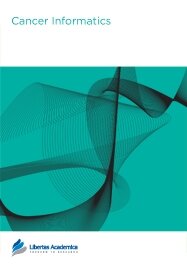

Publication Date: 13 Oct 2014
Type: Review
Journal: Cancer Informatics
Citation: Cancer Informatics 2014:Suppl. 1 29-36
doi: 10.4137/CIN.S13881

This paper concerns a new method for identifying aberrant signal transduction pathways (STPs) in cancer using case/control gene expression-level datasets, and applying that method and an existing method to an ovarian carcinoma dataset. Both methods identify STPs that are plausibly linked to all cancers based on current knowledge. Thus, the paper is most appropriate for the cancer informatics community. Our hypothesis is that STPs that are altered in tumorous tissue can be identified by applying a new Bayesian network (BN)-based method (causal analysis of STP aberration (CASA)) and an existing method (signaling pathway impact analysis (SPIA)) to the cancer genome atlas (TCGA) gene expression-level datasets. To test this hypothesis, we analyzed 20 cancer-related STPs and 6 randomly chosen STPs using the 591 cases in the TCGA ovarian carcinoma dataset, and the 102 controls in all 5 TCGA cancer datasets. We identified all the genes related to each of the 26 pathways, and developed separate gene expression datasets for each pathway. The results of the two methods were highly correlated. Furthermore, many of the STPs that ranked highest according to both methods are plausibly linked to all cancers based on current knowledge. Finally, CASA ranked the cancer-related STPs over the randomly selected STPs at a significance level below 0.05 (P = 0.047), but SPIA did not (P = 0.083).
PDF (684.73 KB PDF FORMAT)
RIS citation (ENDNOTE, REFERENCE MANAGER, PROCITE, REFWORKS)
BibTex citation (BIBDESK, LATEX)
XML
PMC HTML

This is the first time for us to submit a manuscript to Cancer Informatics. We thank the peer reviewers for their insightful comments, which have improved our manuscript markedly. We were pleased to find that the staff were extremely helpful and kept us informed of the progress of the submission step-by-step. Our experience with Cancer Informatics has been tremendous. Thank you very much!
Facebook Google+ Twitter
Pinterest Tumblr YouTube